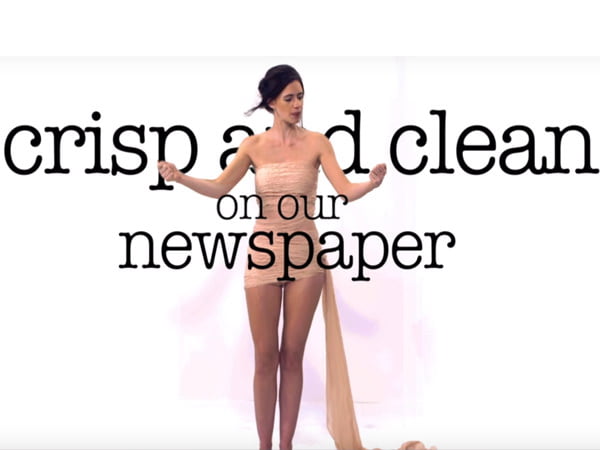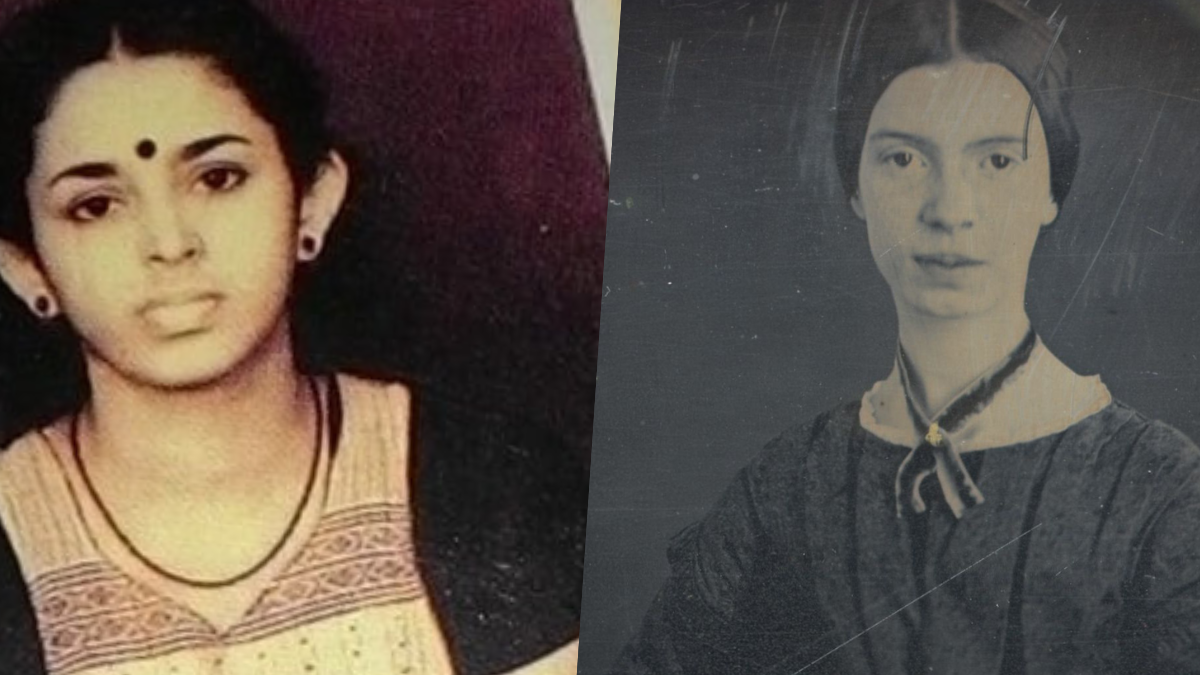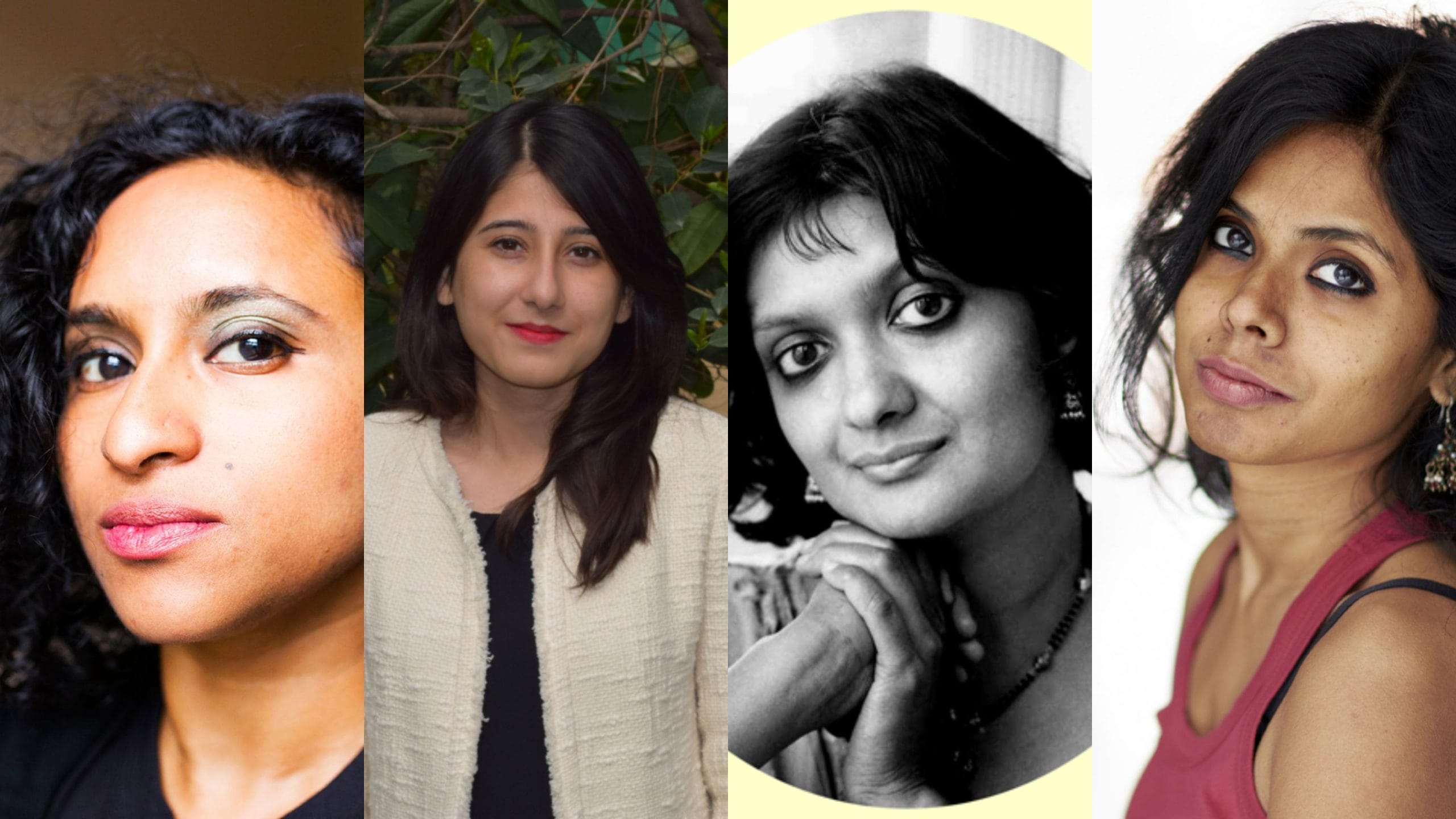I was 19 when I heard Faiz Ahmed Faiz’s poem, ‘Hum Dekhenge.’ It was written by him during Zia-ul-Haq’s regime. Faiz was put in jail during this period. In 1985 under his oppressive regime, Zia ul Haq banned the sari. The same year Iqbal Bano came on stage wearing a black sari in defiance of Haq’s regime and sang a rendition of ‘Hum Dekhenge’ in front of 50000 people. Moved by her performance and the revolutionary call in the poem, the crowd erupted into chants of “Inquilab Zindabad” which can be heard in the middle of this piece (and one can hear Bano trying to sing over the call for freedom). In 2016, I got “Hum Dekhenge” tattooed on me, not solely for its words but also for her performance.
This is not the only piece of performance poetry that has moved mountains, and this definitely will not be the last. Soon after this, I started following more poets and performances and it led me to something revolutionary: Spoken Word Poetry.
Kalki Kochelin performs “The printing Machine, Up Until 2015” poetically dealing with the gender-based violence in media (mis)representation.
Spoken word poetry is one of the oldest means of story-telling. It has been around since poetry started being composed. Poetry was spread through oral means and only later did it get physically documented.
In the 21st century, spoken word poetry holds an extremely important position and in my opinion, a revolutionary one . It is a revolutionary space not because it has changed countries and brought down oppressive regimes, but because it has the power to change people and it is the people who change the world. Rafeef Ziadah’s poem “We teach life, Sir” (wich is the inspiration for the title) is one such piece. The story of Palestine that Ziadah narrates in this poem was so powerful that it inspired visual narratives by children from Gazia for a photo exhibition in Scotland. The aim of the exhibition was to forge strong connections between Palestine and Scotland.
The revolution doesn’t even have to be big, it could be a small one too, all of it makes a larger impact. In a conversation with Ray Iyer, a spoken word poet and the co-founder of Rhyme with Reason she told me “Poetry was an important form of self-expression for me, but spoken word was different. The stage was a space of power for me, it allowed me to be at my most vulnerable to the point where I broke down, but I came out of it stronger because the audience never let me feel alone. This goes both ways, the impact the audience has on a performer and the impact a performer has on the audience. I was doing a piece on stage in Dubai on menstruation. After the piece ended a man came up to me and told me that he had grown up with a sister. When she started her period she was ostracized. He aped this behaviour and would shame her. The performance was a turning point though and he said he didn’t know how he should go up to his sister and apologize.”
What spoken word has done is given a voice to the marginalized communities and taboo conversations. To stories that were not heard, to audiences that didn’t have a platform to listen, and words that were too scared of the public space. Most importantly, it has allowed women and people of various genders and other marginalised voices to speak out.
Lost voices tackles the issue of ‘speaking out’ for the oppressed and in the bargain failing to let them speak.
It has given them a safe space to start conversations that they are still scared to talk about on social media or television or even in the comfort of their own homes.
“I was talking about masturbation and orgasms and sex in front of SO MANY PEOPLE and I felt so strong and powerful and brave. It was a revelation really! People were listening. They wanted to hear me say these things. It was liberating.”
said Priyanka Sutaria, who was a finalist at the first National Youth Poetry Slam this year. This is not an isolated story. Spoken word has been a powerful stage, which has allowed people to come up and talk about their experiences. “There’s nothing that makes it easier to talk about scary topics than standing and looking out at an audience who wants to be there for you.” said Aashna Iyer
Fantastic Breasts and where to Find them takes down the faulty world of male gaze pornography and the need for more stories like that of Fan Fiction erotica.
For centuries, women have had to relegate themselves to spaces where they have had to fight for their right to voice their opinion. Every space has been a fight to be visible, including the online. Spoken word is different as it brings forth individual stories, performances, people, places together to be part of an exchange. An exchange of ideas, thoughts, perspectives, and of course methods to break the patriarchy (and other oppressive systems). For example, Anna Binkovitz’s ‘Asking for it’ breaks and destroys the concept of victim-blaming and that they were “asking for it”.
“Women are not often heard in public spaces, and spoken word is not like that. It is safe, it is open, it is fertile ground for experiences to be shared.” said Priyanka.
This brilliant piece by Vinatoli Yeptho breaks down stereotypes about women and especially women from the North East in 5 simple rules.
As a consumer of Spoken Word, performances have been therapeutic and empowering. They have helped me battle heart breaks, sexual assualts, mental illness, body image, and oppressive systems.
‘Collapse the Economy’ is a powerful poem that is a call to bring down the capitalist system that has oppressed women through various industries. The leader of them being the cosmetic industry.
Sarah Kay is one of the most well known Spoken word poets in the world. She wrote this poem for her best friend. She talks about how women have the power to define and build their own lives and are not defined by men.
It became a weapon to fight and speak up about topics such as sexual violence, pleasure, sex, sexuality in a non-violent and powerful manner in a society that has tried to shun any voice that talks about any of these topics. The mere act of watching women or people of other marginalized communities speak, rhyme, rap, or basically perform their story is an act of rebellion, an act of bravery.
Today, rebel.
The Airplane Poetry Movement and Button Poetry are wonderful places to start!
About the author(s)
I spend most of my time trying to smash the patriarchy, keep my privilege (of being a cis-upper middle-class woman) in check, and hoarding books. In my free time, I travel and work in the field of gender research and writing. I believe that equal rights, poetry, and pani puri can change the world.




